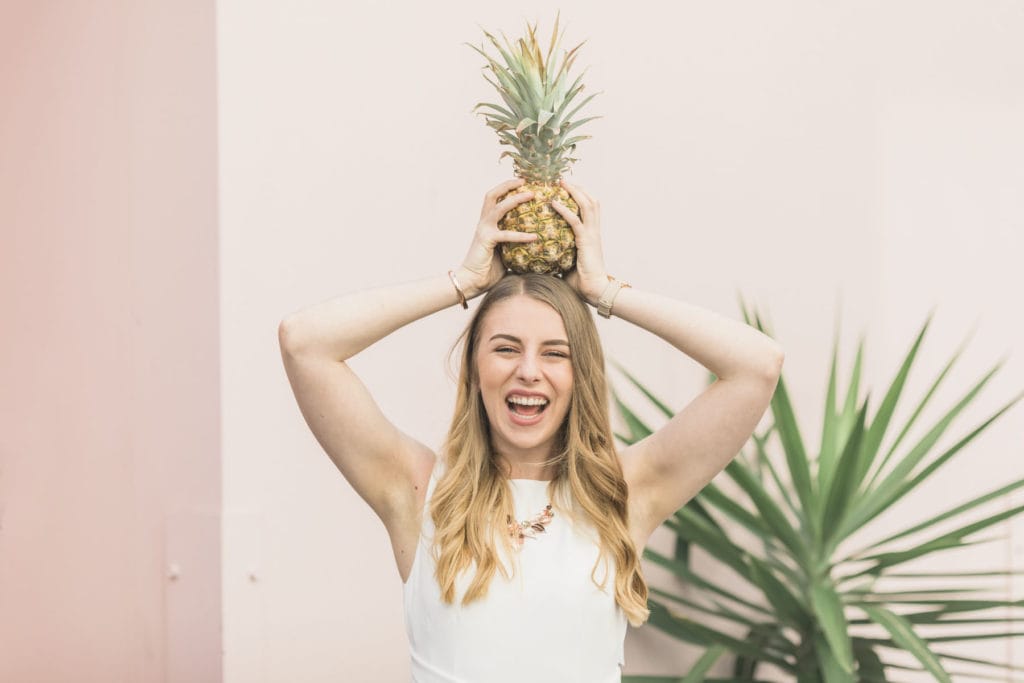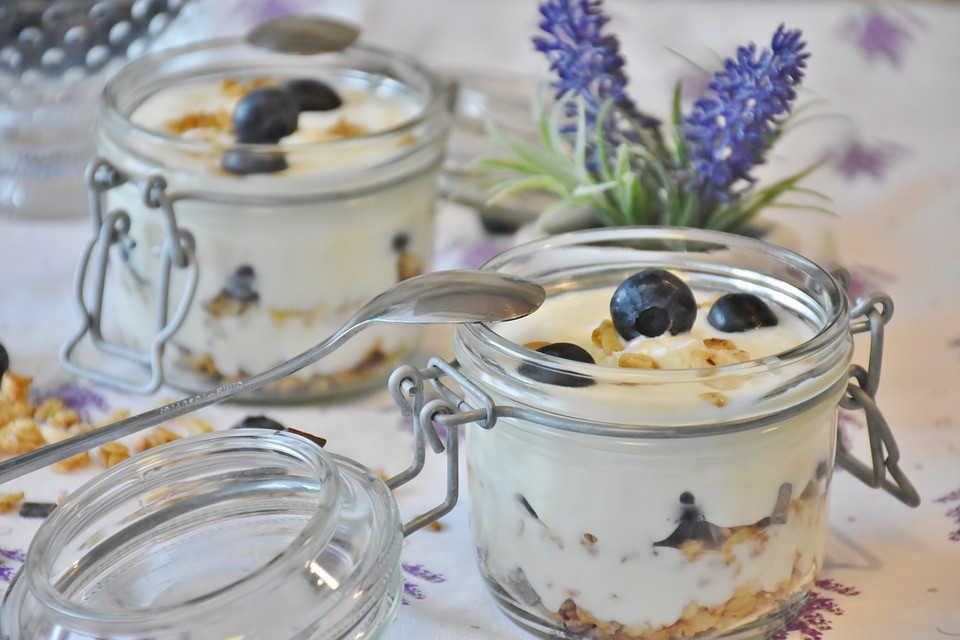Fertility Nutrition – The 5 Biggest Myths Debunked!

If you weren’t already aware, nutrition plays an important part in the fertility journey. But there’s soooo much information out there about what to eat, what not to eat, and when to eat it, that it can all get a bit confusing. You might have received some fertility advice from a friend or fertility coach, and then see information that suggests otherwise on a fertility blog, sound familiar?
Luckily for you, fertility dietitian & nutritionist Stefanie Valakas has taken it upon herself to debunk some of the most common myths she encounters while helping couples trying to conceive, while sprinkling in some of her expert knowledge on the relationship between food and fertility.
Fertility nutrition should be a priority on every man and woman’s agenda when trying to conceive, whether you’re seeking fertility treatments or not. Science tells us that the health of parents before conceiving is pivotal in predicting the health of your future baby, and also can make a difference to your chances of conception success!
As a fertility dietitian & nutritionist, I love seeing the word get out there about nutrition and food playing an important role in supporting our bodies when trying to conceive, undoubtedly, the number of fertility nutrition myths has dramatically risen too!
So, I am debunking the top 5 fertility nutrition myths that I hear on a near-daily basis supporting women and men from around the world both one-on-one and inside my popular 4-week online program, The Waiting Game (more on that later).
Let’s dive into some of the top fertility nutrition myths!
1. Pineapple core will help with implantation
Eating pineapple core after an embryo transfer has become a rite of passage in the IVF community, so much so that it is now widely recognised as the symbol for fertility and trying to conceive (TTC) community!
Rumour has it that eating pineapple, especially the core, may help aid in implantation, or make your embryos ‘sticky’.
So, what does science have to say about pineapple core for fertility?
There is NO scientific evidence at this time to support this theory. However, there have also been no clinical trials to demonstrate that it does not work. Additionally, having a thick enough uterine lining is important for implantation, and there are no clinical studies to date, that have proven that pineapple can enhance implantation.
However, it is thought that perhaps bromelain (the enzyme responsible for that tingly tongue feeling after eating pineapple), which is concentrated in the core of the pineapple, may act as a mild blood thinner, and this in turn may aid in implantation (Pavan, R., 2012).
2. Gluten free diets are essential when trying to conceive
Gluten is the protein found in grains wheat, rye and barley, and over the past 5-10 years it has become one of the most avoided components of food. Fears of inflammation, worsening digestion and even worsening infertility are all claims that I have heard women relay back to me in session and on social media.
If you’re already over avoiding bread, pasta and your favourite pastries, then I have good news for you! There is no evidence that eating gluten has a negative impact on your fertility, nor is there any benefit of following a gluten-free diet when trying to conceive.
Hello, delicious sourdough!
In fact, avoiding gluten can also deplete your diet of some essential fertility nutrients like folic acid, iodine, zinc, other B vitamins plus less dietary fibre, so important for regular healthy bowel motions.
There are a couple of exceptions here, including Coeliac disease, an autoimmune condition affecting the gut which requires management through a strict gluten-free diet supervised by a dietitian.
Coeliac disease affects about 1% of people worldwide and can impact both male and female fertility. Eliminating gluten before getting yourself tested can result in a false negative, so be sure to include gluten regularly before your Coeliac disease blood test to ensure it is accurate.
There has also been some evidence to suggest that reducing gluten can help with the management of pain associated with endometriosis.
In an Italian study, of 156 women with endometriosis who followed a gluten-free diet for 12 months, 75% reported improvements in pain and quality of life, however, there was no outcomes reported around fertility, so we do not know if this could benefit women with endometriosis who are trying to conceive.
If you feel better without gluten and you’re trying to conceive, be mindful of some of the nutrients that you may be missing. Consider consulting with a fertility dietitian for customised dietary support based on your unique needs.
I talk about gluten-free diets more inside The Waiting Game, my 4-week group online program designed to transform your diet for optimal fertility based on the latest science and none of the fads, plus my experience helping hundreds of women around the world improve their chances of conception success!
3. You only need to take folic acid when trying for a baby
Recently, I have been hearing this a lot, that the only dietary supplement recommended before conceiving or in early pregnancy is folic acid. And I am here to say that is simply not true!
There are many other nutrients that are required in increased amounts during pregnancy, and whilst eating well should be the number one priority, a good quality prenatal supplement to fill in the gaps is key, and it should contain more than just folic acid.
At a minimum, your prenatal supplement regime should also include iodine, to support your thyroid function and protect your baby’s brain development. Iodine is also found in seafood, seaweed and breads that are made with iodised salt (depends on the country).
Not to mention that most women do not get enough iron, zinc, choline or omega-3s in their diet, all critical nutrients in high demand during pregnancy. You can learn more about these nutrients and where to find them inside The Waiting Game.
If you’re a vegan or vegetarian, make sure you are supplementing vitamin B12 and review your iron blood levels with your medical team regularly to avoid deficiency which may have a negative impact on fertility.
I am a big advocate for individualised supplement advice, as our unique nutrient demands are dependent on dietary habits (e.g. are you vegetarian, vegan), medical history, weight and blood work as well as family history.
4. Dairy is inflammatory and contributes to infertility
Many people have lactose intolerance and struggle to digest dairy, avoiding it for these reasons, or choosing to avoid it due to ethical reasons, there is little other reason to be saying goodbye to the humble glass of milk and all its products.
In fact, full-cream dairy has been associated with a reduced risk of anovulation, one of the leading contributors to female infertility, and is one of the key points inside my preconception lifestyle checklist which you can snag for free right here.

Yet, I hear from many women who feel as though they shouldn’t be having milk, yoghurt or cheese whilst trying to conceive and feel guilty about it!
There is no evidence to suggest that dairy contributes to inflammation or reduced fertility, and we should be prioritising calcium-rich foods in the lead up to pregnancy when your growing baby will use your very own calcium reserves (which live in your bones, by the way!) to build their own skeleton!
If you have trouble with dairy for any reason whether ethically or from a digestive standpoint, please chat with a dietitian about alternatives and supporting you with other foods and potentially supplementation to reach your nutrient targets.
5. You cannot drink any coffee when trying to conceive
I am a big believer that I have to be able to practice what I preach, and if you ask anyone I know, I simply cannot go a morning without my cup of coffee!
Caffeine is the active ingredient we are talking about when it comes to tea, coffee, cola drinks, chocolate, matcha tea and even found in some sports supplements and bars.
At high levels, yes, caffeine is detrimental to fertility, but most men and women can get away with 1 cup of coffee per day or a couple of cups of black tea and stay well within the guidelines for preconception and pregnancy.
So, you don’t have to go cold turkey on your daily cuppa just yet!
Of course, there are some circumstances where you may consider really eliminating caffeine, like if it makes your heart race or worsens anxiety, for example, but finding what is right for you – without the guilt – is key!
It is so important to balance out the little things in life that make us happy, those simple pleasures and not completely eliminating all of these when trying to conceive, my approach is both sensible and practical so you can integrate these dietary changes with ease!
Are you currently trying to grow your family? Ready to go from confusion to clarity on all things fertility nutrition? Book with our team at The Dietologist, expert fertility dietitians & nutritionist,s and let’s get you started on building a fertility friendly diet that is just right for YOU!
This article was originally published for Fertility Help Hub, you can check out my podcast on PCOS and the ketogenic diet over at the Fertility Springboard Podcast.
Liked this article? You may also like this one, busting myths about pregnancy loss by Jennifer Robertson.